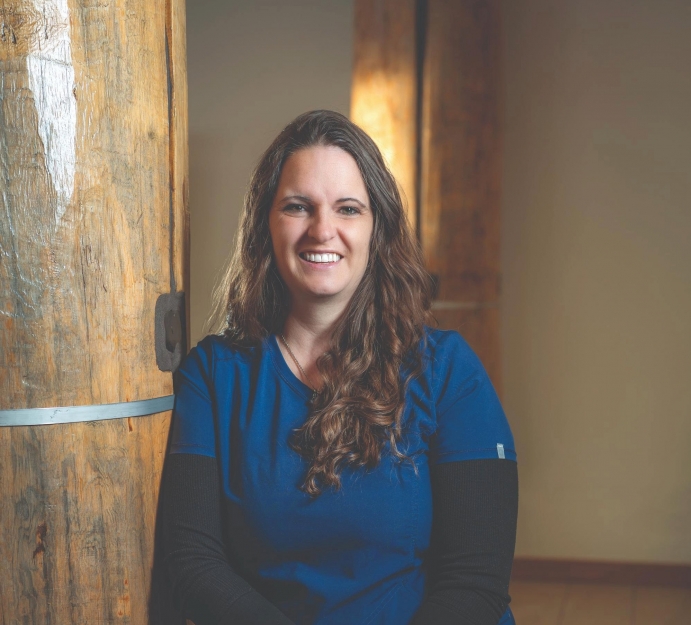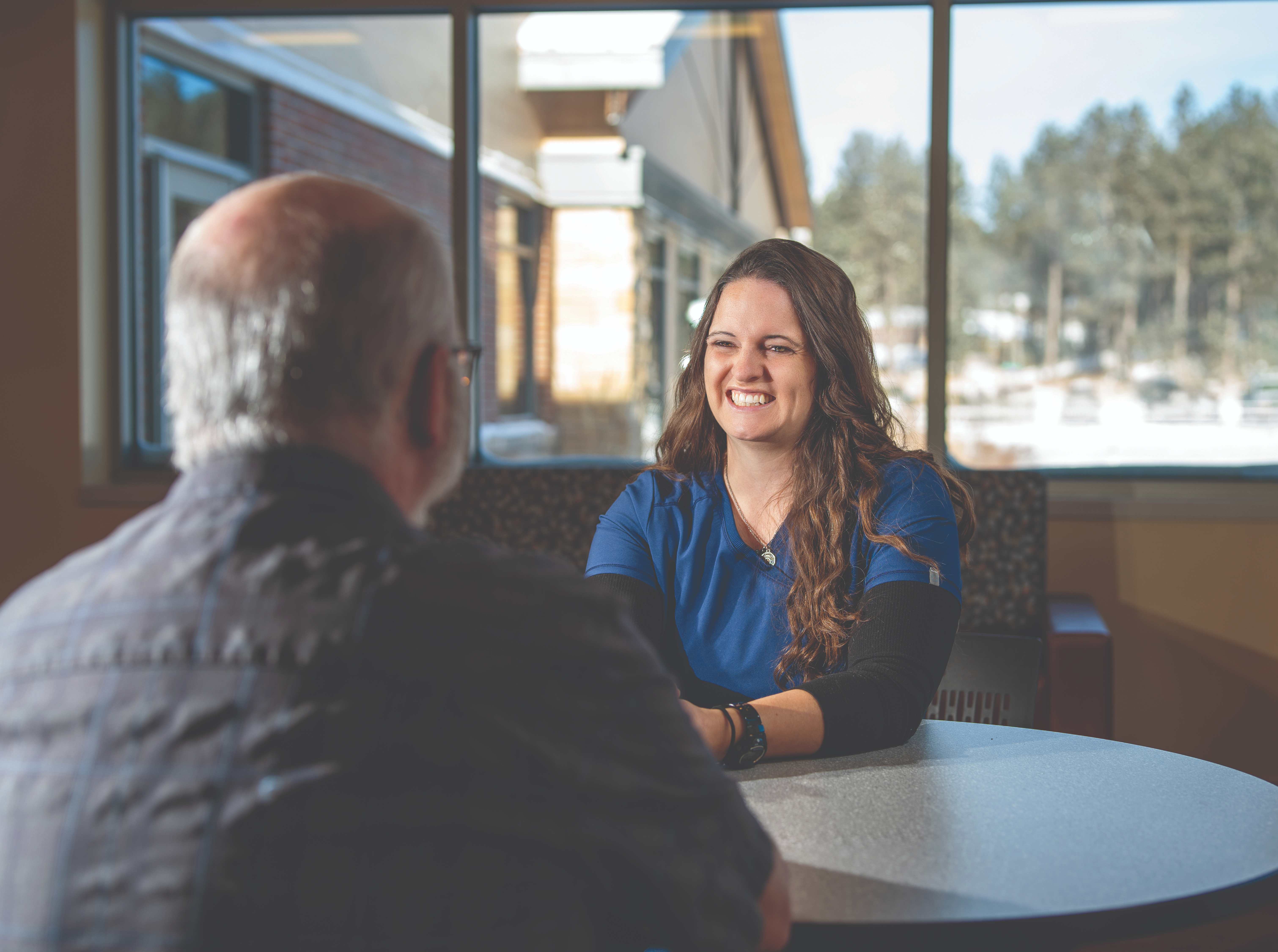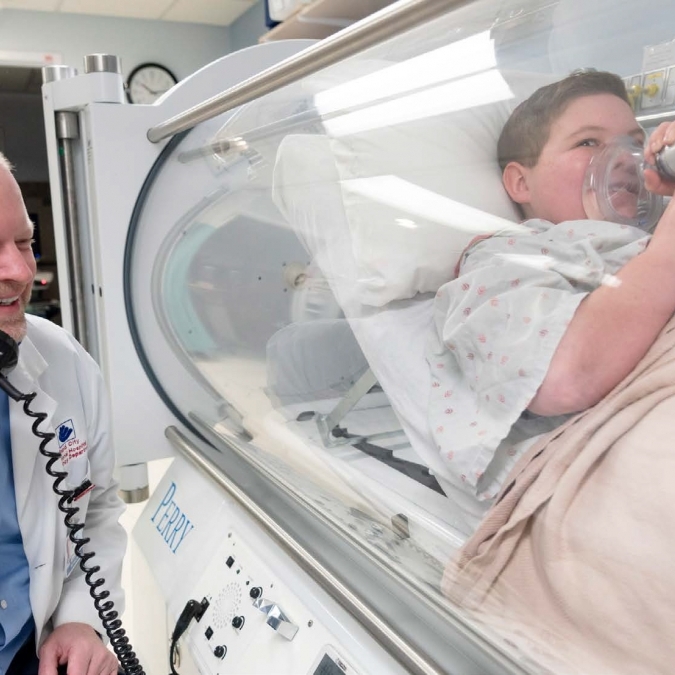When you’re experiencing a medical issue and you don’t know if you should schedule a primary care appointment, go to urgent care or head directly to the emergency room, triage call nurse Grace Hastey, RN, BSN, knows just what to ask: “We use proven protocols that we go through. We ask a lot of questions, and it’s very patient specific.”
For Grace, serving as a triage call nurse is a family affair. Growing up in Colorado, her mother set an example as a triage call nurse, and although Grace didn’t necessarily intend to follow in her mother’s footsteps, she quickly fell in love with the profession and the advantages of working the phones. “It never occurred to me that I’d be doing this,” Grace said, but as she also pointed out, “I’m a talker… and this is a super valuable tool for the community.”
The program got the green light at Monument Health in June 2021. At first, they were helping patients manage COVID-19 symptoms, schedule diagnostic testing or vaccines. Now, the program has evolved into addressing a variety of issues — from refilling prescriptions to following up on discharged patients.
“I work with an amazing team from incredibly varied backgrounds. We have nurses that have previously specialized in OB, Urgent Care, ED, Cardiology, Ambulatory/Clinic and Wound Care just to name a few. We each bring something specific and unique to the team, but I have never worked with such a well-balanced team. We each work on specific tasks throughout the day, but everyone is so helpful and each person is cross-trained to do every task. If one person is having difficult calls or situations, anyone else can jump in and help out, and they all do so willingly, often without being asked. They see the need and fill it.”
“My role as a telephone triage nurse involves assessing any variety of conditions over the phone and helping the patient get to the right level of care at the right time. We follow evidence-based protocols that are very conservative to accomplish this — between pediatrics and adults there are almost 700 protocols to assess,” Grace explained. “We triage anything from snake bites to sore throats, blood pressure issues to poisoning, vomiting to foreign bodies and almost everything in between. If someone can be seen appropriately in the clinic in the next day or so, we will recommend some things to try at home in the meantime, and if they need immediate care, we connect them with emergency services or direct them to the ER.”
The Nurse Triage Line team fields calls from other clinics, but they are a free service readily available to the community. “Anyone can call us when they have a question about what care they need. We get between 1,600 and 1,800 calls each month, and we divvy them up depending on the need,” Grace said. The nurses spend about 10 minutes on each call.
Stomach pain, vomiting and diarrhea are among the most common complaints. Grace emphasized that they provide patient-centered care, even though it’s not in person. “I’m really glad I’ve been able to help bring this to the table.” Grace said. “I just wish that the community at large knew we’re here, and we’re available. This is a free service, and if you want to talk to a nurse about what’s going on and get an educated assessment of what’s going on, we can do that for you.”
Each day is different, and you never know what questions callers will have. One of Grace’s most memorable calls came from someone visiting from out of state who was bit by a prairie dog in the Badlands. “I used the ‘animal bite protocol’ and sent them in for rabies exposure and potentially rabies prophylactic treatment.” And there’s no judgment, she said. “I didn’t ask what they were doing. It wouldn’t have changed my advice.”
“I’m passionate about helping people, which is why I was drawn to nursing in the first place. By transitioning to telephone triage, I am able to help so many more people than I could working in ICU and just having one or two patients per shift,” Grace said. “Don’t misunderstand me, that is absolutely vital work, but I found myself in a season of life where I needed to have more emotional space and telephone triage was an asset for me and a wonderful shift in dynamics. I’m grateful that I get to do one call at a time and focus on that one person, and once I’m done I can move onto the next one. It makes me more mentally present for each call.”
Story by Stacy Friedman
Photos by Bob Slocum




